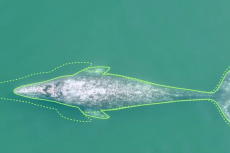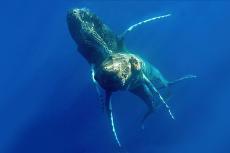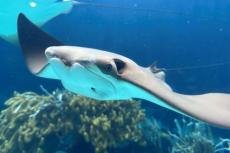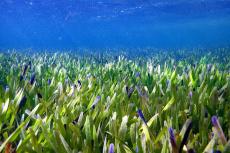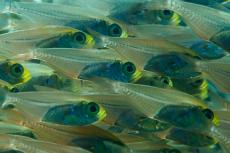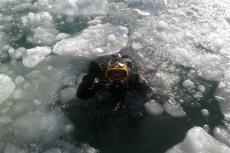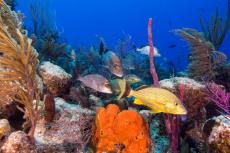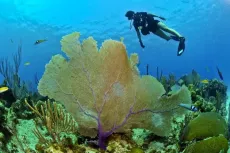
Choosing a degree is a pivotal decision for many, shaping career paths and personal growth. For those who have a lifelong fascination with the ocean, pursuing an academic field related to marine environments offers a unique opportunity to align passion with profession. Ocean-related degrees encompass a wide range of disciplines, each providing a gateway to preserving the planet’s largest and most mysterious ecosystems. This article explores seven degrees perfect for ocean lovers, detailing what each entails and the diverse career opportunities they offer. From delving into the complex biology of marine life to engineering innovative maritime technologies, these degrees offer more than just education; they are a portal to making a significant impact on oceanic conservation and exploration.
Marine Biology
Marine Biology is an enchanting field, ideal for those who are curious about the life forms inhabiting over 70% of the Earth’s surface. This degree involves studying marine organisms, their behaviors, and the interactions within their ecosystems. Students learn through a combination of lab work, lectures, and, often, exciting hands-on fieldwork in diverse marine environments.
For aspiring marine biologists, career paths are as varied as the species they study. Many graduates find themselves working in conservation efforts, helping to protect endangered marine species and their habitats. Others may contribute to academia, advancing research on marine biodiversity, disease, and the impacts of climate change on aquatic life. Additionally, for those looking for resources or needing help with academic papers or projects, finding a reliable website to write papers for you can be an invaluable tool during your studies, ensuring you have the support needed to excel in this challenging and rewarding field.
Oceanography
Oceanography is a comprehensive field that invites you to explore the oceans from multiple perspectives—physical, chemical, biological, and geological. Students in this discipline learn about everything from ocean currents and marine geology to the chemical properties of the ocean and its overall impact on global climate systems and marine life. The degree typically combines theoretical studies with practical research, including sea expeditions and lab experiments, providing a robust understanding of global marine systems.
Career opportunities for oceanographers are broad and can vary from environmental monitoring and protection to working with governmental and private entities focused on understanding and mitigating the effects of environmental issues like global warming and sea-level rise. Oceanographers often work closely with environmental scientists, policymakers, and engineers to develop comprehensive strategies that address some of the most pressing marine and environmental challenges.
Marine Engineering
Marine Engineering is the perfect field for those who love the ocean and have a knack for problem-solving and innovation. This degree focuses on the design, construction, and maintenance of systems and equipment used in the marine industry. From ships to submarines and from harbor installations to offshore drilling platforms, marine engineers are vital to the operations and advancements within maritime contexts.
Students of marine engineering gain in-depth knowledge of engineering principles as they apply to the marine environment. The curriculum not only covers engineering and mechanical skills but also includes elements of environmental science to ensure that innovations are sustainable and environmentally conscious. Upon graduation, marine engineers have a plethora of career options, including working in shipbuilding, maritime transport, and even the rapidly growing field of renewable marine energy sources. Their work ensures that maritime operations are safe, efficient, and less harmful to the environment, making them integral to the industry’s future.
Environmental Science
Environmental Science is an essential degree for those who are passionate about understanding and solving the complex environmental issues affecting our oceans. This interdisciplinary field draws on biology, chemistry, physics, and geology to provide a broad understanding of how natural processes and human activities impact marine environments. Students explore topics such as marine pollution, conservation biology, and the sustainable management of natural resources.
Graduates with a degree in Environmental Science have a wide range of career paths available to them. Many find positions in government agencies where they develop and enforce policies that protect marine environments. Others work for non-profit organizations focused on conservation and public education regarding oceanic health. Environmental consultants are also in demand, advising businesses and governments on how to minimize their environmental impact and comply with regulations. These careers not only require a robust knowledge of science but also a strong commitment to making a difference in the sustainability and health of marine ecosystems.
Maritime Studies
Maritime Studies offers a unique blend of historical, cultural, and policy-related education tailored for those interested in the human aspects of the ocean. This degree explores the relationship between people and the sea, covering topics like maritime history, maritime law, and the economics of maritime industries. It is particularly suited to those who are interested in the socio-economic and legal dimensions of maritime activities and how they influence global trade, politics, and culture.
Career opportunities for graduates are diverse, ranging from positions in heritage management, where they preserve and interpret maritime history, to roles in maritime education and policy-making. Many also enter the maritime law field, dealing with issues such as shipping regulations, marine insurance, and international maritime disputes. This degree equips students with a deep understanding of how maritime issues have shaped and continue to influence global dynamics.
Coastal Geography
Coastal Geography is a dynamic degree choice, focusing on coastal and shoreline environments. Students study the physical and social dynamics that shape coastlines, including waves, tides, and coastal erosion, as well as human interaction with the coast, such as urban development and tourism. The degree combines elements of physical geography with ecology and environmental management, preparing students to address challenges such as coastal erosion, sea-level rise, and habitat loss.
Careers for Coastal Geography graduates are varied, ranging from coastal planning and management to roles in disaster response and mitigation. They work with government agencies, environmental consultancies, and non-governmental organizations to develop strategies that protect coastal communities and their environments. Additionally, they may engage in research projects aimed at understanding coastal processes and improving the resilience of coastal areas against natural disasters.
Aquatic Veterinary Science
Aquatic Veterinary Science is tailored for those who want to combine their love for the ocean with a passion for animal health. This degree focuses on the medical care of marine and freshwater animals, addressing everything from preventive care to the diagnosis and treatment of disease. Students learn about a wide range of aquatic species, from fish to marine mammals, and are trained in the unique aspects of aquatic animal health, including surgery and rehabilitation.
Career paths in this field include working in aquariums, where aquatic veterinarians care for a diverse array of marine life, or in research facilities, where they contribute to studies on disease, reproductive health, and species conservation. Wildlife conservation efforts also heavily rely on aquatic veterinarians to manage the health of populations in natural habitats and respond to ecological crises, such as oil spills or other environmental disasters.
Conclusion
Pursuing a degree related to the ocean is not only about embracing one’s passion but also about preparing to engage deeply with some of the most urgent environmental and societal challenges of our time. From the depths of marine biology to the broad perspectives of maritime studies, each of these degrees offers a unique vantage point from which to explore, understand, and impact the marine world. These fields are united by a common goal: to sustainably manage and protect our oceans, ensuring their health for generations to come. As our understanding and technology evolve, so too will the opportunities for those equipped with the knowledge and dedication to make a difference. Choose a path that not only fulfills your passion but also contributes to a greater understanding and preservation of our planet’s most precious resources.


